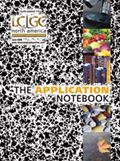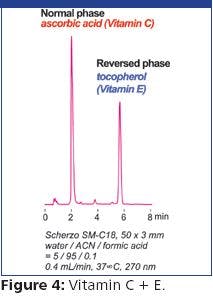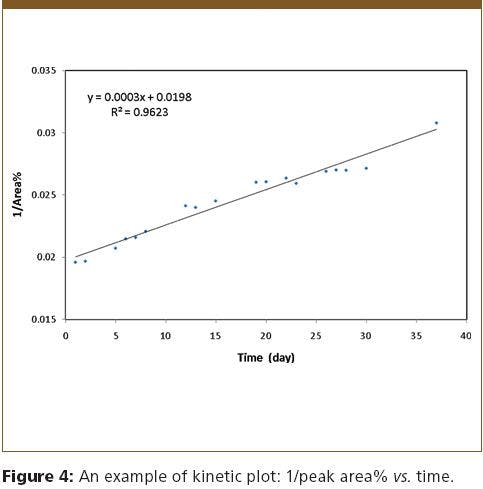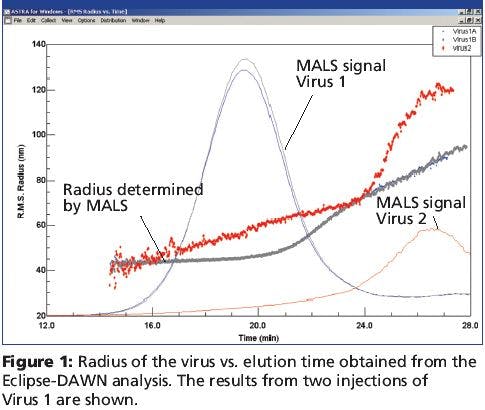Rapid Screening of Pesticides Using U-HPLC/MS
The Application Notebook
The screening of pesticides, mycotoxins, and veterinary drugs is of great importance in regulated environments such as food or feed analysis. Due to some of the limitations of traditional triple quadrupole approaches (for example, targeted analyte detection, limited number of compounds, and unidentified unknown compounds), there is currently a trend towards use of full-scan MS data for the analysis of residue samples. Current screening approaches mainly rely on the use of ToF instruments coupled to U-HPLC delivering mass accuracy (~5 ppm) at a maximum resolution of <15,000. This can produce inaccurate mass measurements due the presence of unresolved background matrix interferences. In this work we show a full-scan MS screening approach with the Thermo Scientific Exactive mass spectrometer, a novel single-stage Orbitrapâ„¢ MS capable of providing precise mass accuracies at resolutions of up to 100,000 without the need for internal mass calibration.
Markus Kellmann, Andreas Wieghaus, Helmut Muenster, Lester Taylor, and Dipankar Ghosh, Thermo Fisher Scientific
The screening of pesticides, mycotoxins, and veterinary drugs is of great importance in regulated environments such as food or feed analysis. Due to some of the limitations of traditional triple quadrupole approaches (for example, targeted analyte detection, limited number of compounds, and unidentified unknown compounds), there is currently a trend towards use of full-scan MS data for the analysis of residue samples. Current screening approaches mainly rely on the use of ToF instruments coupled to U-HPLC delivering mass accuracy (~5 ppm) at a maximum resolution of <15,000. This can produce inaccurate mass measurements due the presence of unresolved background matrix interferences. In this work we show a full-scan MS screening approach with the Thermo Scientific Exactive mass spectrometer, a novel single-stage Orbitrap™ MS capable of providing precise mass accuracies at resolutions of up to 100,000 without the need for internal mass calibration.

Figure 1
Experimental Conditions
An Exactive™ mass spectrometer coupled to a U-HPLC chromatography system was used to evaluate a highly complex mixture of ~150 pesticides, mycotoxins, and plant toxins in different concentrations. A 12 min water/acetonitrile gradient was used with a 50 x 2 mm RP C18 column (1.9-µm particles). Sensitivity, selectivity, and linearity of quantification were evaluated in standard solutions and extracts from animal feed. Orbitrap detection was carried out using automatic control of the number of ions entering the detector. Mass measurements were performed at different resolution settings to enable comparisons to data generated using ToF instruments and to demonstrate the advantages of ultra high resolution.
Results
Comparison of mass measurements at medium and high resolution settings clearly indicates the need for high resolution for screening of compounds in complex matrix samples. Since in many cases interferences cannot be resolved from the analytes, medium resolution results in poor mass accuracies (>10 ppm). In contrast, high resolution yields very high mass accuracies (<2 ppm) for the vast majority of measured compounds. Consequently, selectivity and also sensitivity is increased. In addition, the linearity of quantitation benefits from the use of high resolution, because analytes are not integrated together with interfering matrix background. A minimum resolution of 50,000 was required to ensure matrix interference-free mass accuracy. Limits of detection of 2 to 10 ppb were observed in matrix containing samples.
Conclusion
This work shows that a combination of U-HPLC and high resolution mass spectrometry is an excellent approach for residue screening in the field of food safety because it overcomes the limitations associated with the use of medium resolving instruments.

Thermo Fisher Scientific, Inc.
355 River Oaks Parkway, San Jose, CA 95134-1991
tel. (800)532-4752, fax (561)688-8731
Website: www.thermo.com


.png&w=3840&q=75)

.png&w=3840&q=75)



.png&w=3840&q=75)



.png&w=3840&q=75)














